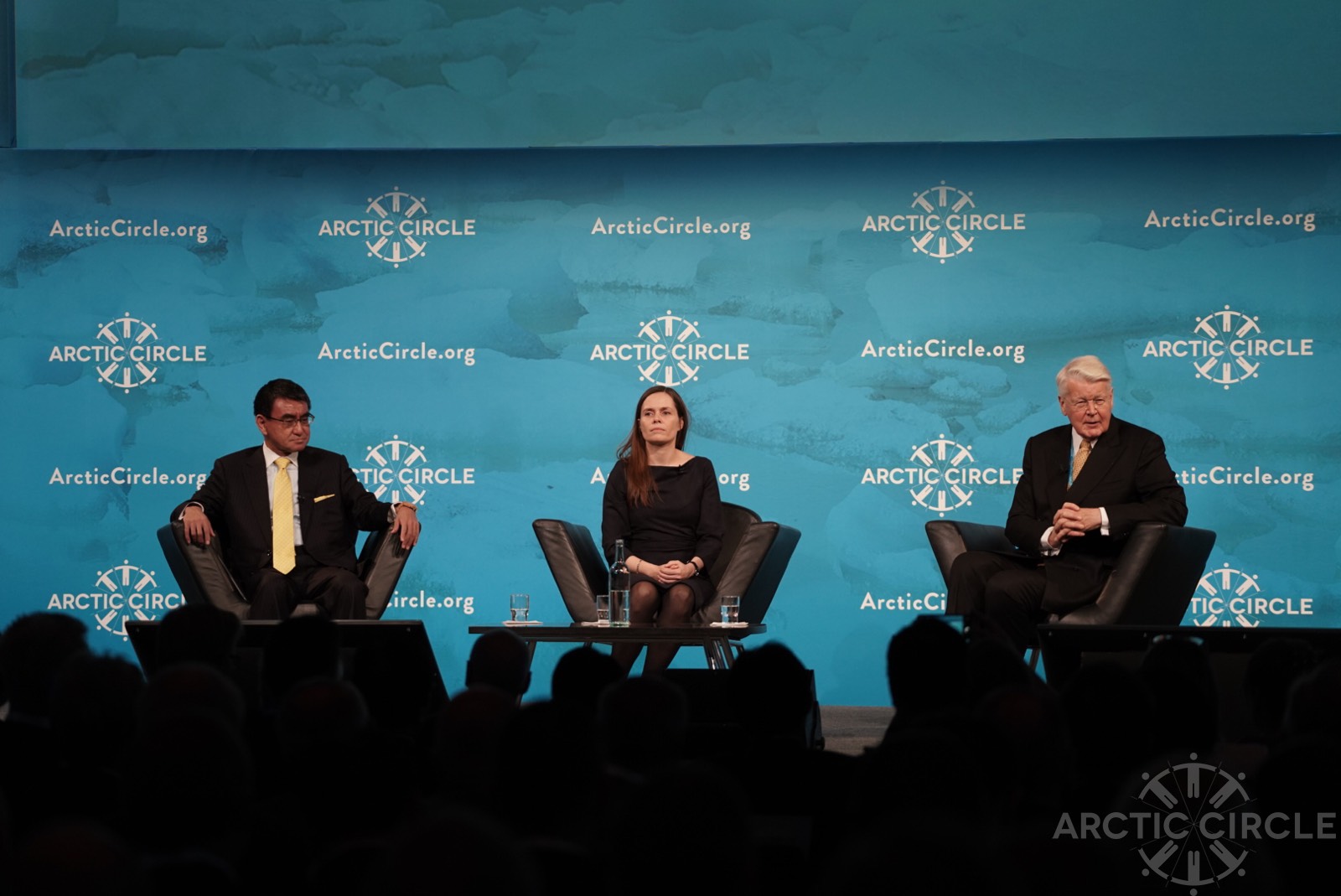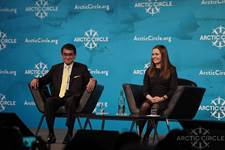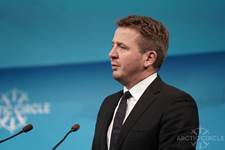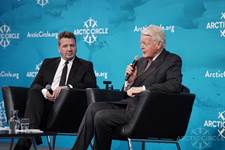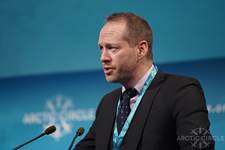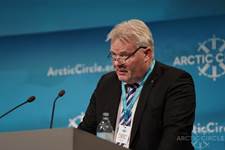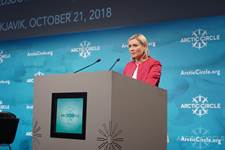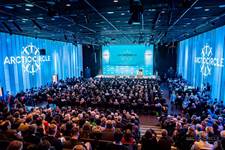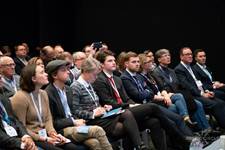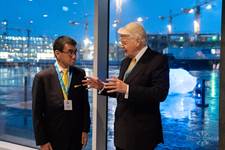Government’s participation in the sixth Arctic Circle Assembly in Reykjavík
The annual Arctic Circle Assembly took place at Harpa last week, attracting over 2,000 guests from over fifty countries. The assembly, led by Ólafur Ragnar Grímsson former President of Iceland, has become the world’s largest international gathering on the Arctic. Former President Grímsson has focused on raising awareness of the changes occurring in the Arctic by bringing together leaders from different spheres of society. The Government of Iceland took an active part in the forum.
Katrín Jakobsdóttir, Prime Minister of Iceland, gave a welcoming statement at the opening session of the assembly on Friday and joined Mr Taro Kono, Minister of Foreign Affairs of Japan in discussions after his keynote speech. The Prime Minister highlighted the importance of immediate actions to tackle climate change “The Arctic is crucial for so many important reasons. It is not only a home to a spectacular and unique wildlife, as well as four million people – but it also helps keep the world‘s climate in balance.”
Sigurður Ingi Jóhannsson, Minister of Transport and Local Government, gave his remarks at a plenary session on Arctic Transport. The Minister discussed the future of shipping in the region, arguing that the Arctic route will “not serve as a substitute for existing shipping lanes but will instead provide a new and seasonal additional capacity for a growing transportation volume. For this Iceland will be prepared and will make the most of the new possibilities in transhipping.”
Guðmundur Ingi Guðbrandsson, Minister for the Environment and Natural Resources, gave a speech in the plenary session on Saturday and chaired a dialogue with Sir David King. During the session the Minister discussed climate change and changes in the Arctic, pointing out that when working on “climate affairs we need good science, effective policies and global cooperation.” He also discussed the new climate action plan which is to help the Government reaching “the ambitious goal of becoming carbon neutral by 2040.”
The Ministry for Foreign Affairs hosted a breakout-session on “Climate Change in Arctic Iceland” and co-hosted a session on “Arctic Leadership: Gender and Diversity in Politics, Science and Industry”, in cooperation with the Icelandic Arctic Cooperation Network; the Icelandic Centre for Gender Equality, University of Akureyri; Centre for Arctic Policy Studies, University of Iceland.
Guðlaugur Þór Þórðarson, Minister for Foreign Affairs, participated in a breakout session on the “New Geo-Political Reality in the West Nordic Area”, along with Mr Poul Michelsen, Minister of Foreign Affairs and Trade of the Faroe Islands and Ms Ane Lone Bagger, Minister of Foreign Affairs of Greenland. The event was organised by the Faroese Ministry of Foreign Affairs and Trade, and the West Nordic Council.
In the closing plenary session of the assembly the Foreign Minister discussed Iceland’s Arctic policy and introduced its intentions for the upcoming chairmanship of the Arctic Council 2019-2021, highlighting that sustainable development will be the guiding light in the Icelandic Chairmanship programme. “Sustainable development can be compared to a three leaved clover because social, environmental and economic sustainability must go together. That is why we must strive for economic prosperity and social well-being in a strong and healthy Arctic environment”, said the Minister.
At the closing plenary session, Lilja Dögg Alfreðsdóttir, Minister of Education, Science and Culture, spoke about the “Arctic Science Ministerial Cooperation” and the way forward. The Minister highlighted the importance of international scientific research cooperation as the basis for informed decision making and policy making in the Arctic.
The Arctic Business Summit took place on the margins of the Arctic Circle Assembly, with the participation of Bjarni Benediktsson, Minister of Finance and Economic Affairs. He emphasised a dialogue with the private sector in Arctic policy making and introduced Iceland’s intentions for the Arctic collaboration in the coming years. The event was organised by the Arctic Economic Council in cooperation with the Norwegian Shipowners Association and SA Confederation of Icelandic Enterprise.
The Ministers also used the opportunity to meet with representatives from foreign governments, politicians and the scientific community among the assembly’s many guests and speakers.
The Arctic Circle is an international non-governmental organisation promoting dialogue and cooperation on the future of the Arctic. Further information on the assembly and future events can be found on the Arctic Circle’s website.

